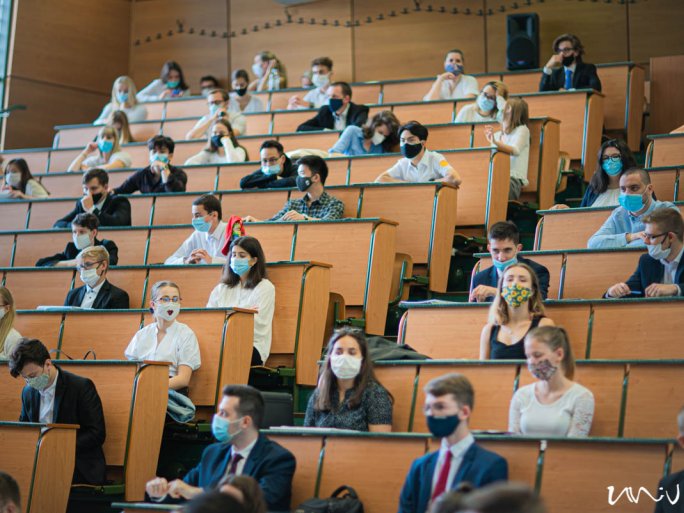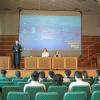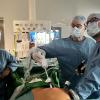An Overview of Education Methods at the UP
2020
Sep
22
Several decisions had to be taken at the University of Pécs for the 2020/21 academic year because of the pandemic. The UP Operative Crew carefully assessed the government’s recommended course of action, as well as the health measures and regulations. Because of the vast differences in the form of education at the ten faculties, they decided to transfer the power of decision making onto each faculty’s dean in order to create the most suitable outcome for the students and to ensure that we as a community will be able to close the semester successfully and in good health.

At the Faculty of Law, the semester starts with attendance education, the dean can allow online education for the Erasmus or Post Gradual Specialization students.
At the Medical School, education requires personal attendance, however, in cases where a course’s nature allows for an online format, the course’s lecturer can decide to have it online. The faculty supports the hybrid model as well, which means that the students can attend lessons both online and with personal attendance as well at the same time.
At the Faculty of Humanities and Social Sciences, courses for full-time students are held in person as a general rule. For those who cannot attend in person, because they are currently can not be in Pécs, courses are either available online or professors provide online course materials and four individual or group online consultations. For those who are in Pécs but are absent because of COVID issues (infected, in quarantine etc.), absence should be accepted by professors. Missed classes can be compensated either by online presence or by extra assignments. Professors decide what they offer for students to compensate their absences.
According to the decision of the Faculty of Health Sciences, all theoretical and practical courses with less than 50 students are held with attendance education. The more than 50 person courses are invariably held online. The theoretical correspondence courses with less than 50 students are going to be held online in most cases. For those first-year students of the English programmes, who are unable to enter the country, will be allowed to attend practical courses online. The faculty supports the hybrid model as well.
At the Faculty of Pharmacy, education is mainly attendance based, but the lecturers can decide to have their courses online (if the nature of the course allows it). The faculty also supports the hybrid model.
The Faculty of Cultural Sciences, Education and Regional Development only offers attendance-based education.
The Faculty of Business and Economics uses the hybrid education model for every course in the Hungarian full-time BA programme’s B-module (department specific), the Hungarian Master’s programme, the English BA and MA programmes and the PhD programme. The institute uses the online education method for the Hungarian BA program’s A- and C-module courses (Basic courses – including the zero credit criteria-requirement courses – and the elective courses), moreover all courses within the correspondence BA program and the advanced vocational qualification (FOKSZ) full-time and correspondence programmes are held online.
At the Faculty of Engineering and Information Technology, all courses are attendance-based. Practical courses are held in person if possible, however, they are streamed as well. The Hungarian programmes’ lab-practice courses can optionally be held in blocks.
Because of the nature of education at the Faculty of Music and Visual Arts, the faculty only offers attendance-based education.
At the Faculty of Sciences, only practical courses are held with personal attendance, thus every non-practical course will be held online. All courses of the English programmes are held online. Correspondence courses are to be held online starting this September. In the undivided teacher training programme and in other cases where the courses are held in other faculty’s departments, the students must follow the instructions of the deans concerned.
Depending on the current epidemiological government measures and faculty decisions, these regulations may change.
- Log in to post comments
University of Pécs | Chancellery | IT Directorate | Portal group - 2020.


















